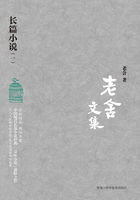This time she could only make a sign with her head.
“You persist?”said Jacques Charmolue.“Then it grieves me deeply, but I must fulfil my office.”
“Monsieur le Procureur du Roi, ”said Pierrat abruptly, “How shall we begin?”
Charmolue hesitated for a moment with the ambiguous grimace of a poet in search of a rhyme.
“With the boot, ”he said at last.
The unfortunate girl felt herself so utterly abandoned by God and men, that her head fell upon her breast like an inert thing which has no power in itself.
The tormentor and the physician approached her simultaneously. At the same time, the two assistants began to fumble among their hideous arsenal.
At the clanking of their frightful irons, the unhappy child quivered like a dead frog which is being galvanized.“Oh!”she murmured, so low that no one heard her; “Oh, my Phoebus!”Then she fell back once more into her immobility and her marble silence. This spectacle would have rent any other heart than those of her judges.One would have pronounced her a poor sinful soul, being tortured by Satan beneath the scarlet wicket of hell.The miserable body which that frightful swarm of saws, wheels, and racks were about to clasp in their clutches, the being who was about to be manipulated by the harsh hands of executioners and pincers, was that gentle, white, fragile creature, a poor grain of millet which human justice was handing over to the terrible mills of torture to grind.Meanwhile, the callous hands of Pierrat Torterue's assistants had bared that charming leg, that tiny foot, which had so often amazed the passers-by with their delicacy and beauty, in the squares of Paris.
“'Tis a shame!”muttered the tormentor, glancing at these graceful and delicate forms.
Had the archdeacon been present, he certainly would have recalled at that moment his symbol of the spider and the fly.Soon the unfortunate girl, through a mist which spread before her eyes, beheld the boot approach; she soon beheld her foot encased between iron plates disappear in the frightful apparatus. Then terror restored her strength.
“Take that off!”she cried angrily; and drawing herself up, with her hair all dishevelled:“Mercy!”
She darted from the bed to fling herself at the feet of the king's procurator, but her leg was fast in the heavy block of oak and iron, and she sank down upon the boot, more crushed than a bee with a lump of lead on its wing.
At a sign from Charmolue, she was replaced on the bed, and two coarse hands adjusted to her delicate waist the strap which hung from the ceiling.
“For the last time, do you confess the facts in the case?”demanded Charmolue, with his imperturbable benignity.
“I am innocent.”
“Then, mademoiselle, how do you explain the circumstance laid to your charge?”
“Alas, monseigneur, I do not know.”
“So you deny them?”
“All!”
“Proceed, ”said Charmolue to Pierrat.
Pierrat turned the handle of the screw-jack, the boot was contracted, and the unhappy girl uttered one of those horrible cries which have no orthography in any human language.
“Stop!”said Charmolue to Pierrat.“Do you confess?”he said to the gypsy.
“All!”cried the wretched girl.“I confess!I confess!Mercy!”
She had not calculated her strength when she faced the torture. Poor child, whose life up to that time had been so joyous, so pleasant, so sweet, the first pain had conquered her!
“Humanity forces me to tell you, ”remarked the king's procurator, “that in confessing, it is death that you must expect.”
“I certainly hope so!”said she. And she fell back upon the leather bed, dying, doubled up, allowing herself to hang suspended from the strap buckled round her waist.
“Come, fair one, hold up a little, ”said Master Pierrat, raising her.“You have the air of the lamb of the Golden Fleece which hangs from Monsieur de Bourgogne's neck.”
Jacques Charmolue raised his voice.
“Clerk, write. Young Bohemian maid, you confess your participation in the feasts, witches'sabbaths, and witchcrafts of hell, with ghosts, hags, and vampires?Answer.”
“Yes, ”she said, so low that her words were lost in her breathing.
“You confess to having seen the ram which Beelzebub causes to appear in the clouds to call together the witches'sabbath, and which is beheld by socerers alone?”
“Yes.”
“You confess to having adored the heads of Bophomet, those abominable idols of the Templars?”
“Yes.”
“To having had habitual dealings with the devil under the form of a goat familiar, joined with you in the suit?”
“Yes.”
“Lastly, you avow and confess to having, with the aid of the demon, and of the phantom vulgarly known as the surly monk, on the night of the twenty-ninth of March last, murdered and assassinated a captain named Phoebus de Chateaupers?”
She raised her large, staring eyes to the magistrate, and replied, as though mechanically, without convulsion or agitation, —
“Yes.”
It was evident that everything within her was broken.
“Write, clerk, ”said Charmolue. And, addressing the torturers, “Release the prisoner, and take her back to the court.”
When the prisoner had been“unbooted, ”the procurator of the ecclesiastical court examined her foot, which was still swollen with pain.“Come, ”said he, “there's no great harm done. You shrieked in good season.You could still dance, my beauty!”
Then he turned to his acolytes of the officiality, —“Behold justice enlightened at last!This is a solace, gentlemen!Madamoiselle will bear us witness that we have acted with all possible gentleness.”
Chapter3 End of the Crown Which was Turned into a Dry Leaf
When she re-entered the audience hall, pale and limping, she was received with a general murmur of pleasure. On the part of the audience there was the feeling of impatience gratified which one experiences at the theatre at the end of the last entr'acte of the comedy, when the curtain rises and the conclusion is about to begin.On the part of the judges, it was the hope of getting their suppers sooner.
The little goat also bleated with joy. He tried to run towards his mistress, but they had tied him to the bench.
Night was fully set in. The candles, whose number had not been increased, cast so little light, that the walls of the hall could not be seen.The shadows there enveloped all objects in a sort of mist.A few apathetic faces of judges alone could be dimly discerned.Opposite them, at the extremity of the long hail, they could see a vaguely white point standing out against the sombre background.This was the accused.
She had dragged herself to her place. When Charmolue had installed himself in a magisterial manner in his own, he seated himself, then rose and said, without exhibiting too much self-complacency at his success, —“The accused has confessed all.”
“Bohemian girl, ”the president continued, “have you avowed all your deeds of magic, prostitution, and assassination on Phoebus de Chateaupers.”
Her heart contracted. She was heard to sob amid the darkness.
“Anything you like, ”she replied feebly, “but kill me quickly!”
“Monsieur, procurator of the king in the ecclesiastical courts, ”said the president, “the chamber is ready to hear you in your charge.”
Master Charmolue exhibited an alarming note book, and began to read, with many gestures and the exaggerated accentuation of the pleader, an oration in Latin, wherein all the proofs of the suit were piled up in Ciceronian periphrases, flanked with quotations from Plautus, his favorite comic author.We regret that we are not able to offer to our readers this remarkable piece.The orator pronounced it with marvellous action.Before he had finished the exordium, the perspiration was starting from his brow, and his eyes from his bead.
All at once, in the middle of a fine period, he interrupted himself, and his glance, ordinarily so gentle and even stupid, became menacing.
“Gentlemen, ”he exclaimed, “Satan is so mixed up in this affair, that here he is present at our debates, and ****** sport of their majesty. Behold!”
So saying, he pointed to the little goat, who, on seeing Charmolue gesticulating, had, in point of fact, thought it appropriate to do the same, and had seated himself on his haunches, reproducing to the best of his ability, with his forepaws and his bearded head the pathetic pantomine of the king's procurator in the ecclesiastical court. This was, if the reader remembers, one of his prettiest accomplishments.This incident, this last proof, produced a great effect.The goat's hoofs were tied, and the king's procurator resumed the thread of his eloquence.
It was very long, but the peroration was admirable. Here is the concluding phrase; let the reader add the hoarse voice and the breathless gestures of Master Charmolue,
“Ideo, domni, coram stryga demonstrata, crimine patente, intentione criminis existente, in nornine sanctoe ecclesioe Nostroe-Dominoe Parisiensis quoe est in saisina habendi omnimodam altam et bassam justitiam in illa hac intemerata Civitatis insula, tenore proesentium declaremus nos requirere, primo, aliquamdam pecuniariam indemnitatem; secundo, amendationem honorabilem ante portalium maximum Nostroe-Dominoe, ecclesioe cathedralis; tertio, sententiani in virtute cujus ista styrga cum sua capella, seu in trivio vulgariter dicto la Grève, seu in insula exeunte in fluvio Secanoe, juxta pointam juardini regalis, executatoe sint!”
He put on his cap again and seated himself.
“Eheu!”sighed the broken-hearted Gringoire, “bassa latinitas—bastard latin!”
Another man in a black gown rose near the accused; he was her lawyer.—The judges, who were fasting, began to grumble.
“Advocate, be brief, ”said the president.
“Monsieur the President, ”replied the advocate, “since the defendant has confessed the crime, I have only one word to say to these gentlemen. Here is a text from the Salic law; 'If a witch hath eaten a man, and if she be convicted of it, she shall pay a fine of eight thousand deniers, which amount to two hundred sous of gold.'May it please the chamber to condemn my client to the fine?”
“An abrogated text, ”said the advocate extraordinary of the king.
“Nego, I deny it, ”replied the advocate.
“Put it to the vote!”said one of the councillors; “the crime is manifest, and it is late.”
They proceeded to take a vote without leaving the room. The judges signified their assent without giving their reasons, they were in a hurry.Their capped heads were seen uncovering one after the other, in the gloom, at the lugubrious question addressed to them by the president in a low voice.The poor accused had the appearance of looking at them, but her troubled eye no longer saw.
Then the clerk began to write; then he handed a long parch-ment to the president.
Then the unhappy girl heard the people moving, the pikes clashing, and a freezing voice saying to her, —“Bohemian wench, on the day when it shall seem good to our lord the king, at the hour of noon, you will be taken in a tumbrel, in your shift, with bare feet, and a rope about your neck, before the grand portal of Notre-Dame, and you will there make an apology with a wax torch of the weight of two pounds in your hand, and thence you will be conducted to the Place de Grève, where you will be hanged and strangled on the town gibbet; and likewise your goat; and you will pay to the official three lions of gold, in reparation of the crimes by you committed and by you confessed, of sorcery and magic, debauchery and murder, upon the person of the Sieur Phoebus de Chateaupers.May God have mercy on your soul!”
“Oh!'tis a dream!”she murmured; and she felt rough hands bearing her away.
Chapter4 Leave All Hope Behind
In the Middle Ages, when an edifice was complete, there was almost as much of it in the earth as above it. Unless built upon piles, like Notre-Dame, a palace, a fortress, a church, had always a double bottom.In cathedrals, it was, in some sort, another subterranean cathedral, low, dark, mysterious, blind, and mute, under the upper nave which was overflowing with light and reverberating with organs and bells day and night.Sometimes it was a sepulchre.In palaces, in fortresses, it was a prison, sometimes a sepulchre also, sometimes both together.These mighty buildings, whose mode of formation and vegetation we have elsewhere explained, had not simply foundations, but, so to speak, roots which ran branching through the soil in chambers, galleries, and staircases, like the construction above.Thus churches, palaces, fortresses, had the earth half way up their bodies.The cellars of an edifice formed another edifice, into which one descended instead of ascending, and which extended its subterranean grounds under the external piles of the monument, like those forests and mountains which are reversed in the mirror-like waters of a lake, beneath the forests and mountains of the banks.
At the fortress of Saint-Antoine, at the Palais de Justice of Paris, at the Louvre, these subterranean edifices were prisons. The stories of these prisons, as they sank into the soil, grew constantly narrower and more gloomy.They were so many zones, where the shades of horror were graduated.Dante could never imagine anything better for his hell.These tunnels of cells usually terminated in a sack of a lowest dungeon, with a vat-like bottom, where Dante placed Satan, where society placed those condemned to death.A miserable human existence, once interred there; farewell light, air, life, ogni speranza—every hope; it only came forth to the scaffold or the stake.Sometimes it rotted there; human justice called this“forgetting.”Between men and himself, the condemned man felt a pile of stones and jailers weighing down upon his head; and the entire prison, the massive bastille was nothing more than an enormous, complicated lock, which barred him off from the rest of the world.
It was in a sloping cavity of this deion, in the oubliettes excavated by Saint-Louis, in the inpace of the Tournelle, that la Esmeralda had been placed on being condemned to death, through fear of her escape, no doubt, with the colossal court-house over her head. Poor fly, who could not have lifted even one of its blocks of stone!
Assuredly, Providence and society had been equally unjust; such an excess of unhappiness and of torture was not necessary to break so frail a creature.
There she lay, lost in the shadows, buried, hidden, immured. Any one who could have beheld her in this state, after having seen her laugh and dance in the sun, would have shuddered.Cold as night, cold as death, not a breath of air in her tresses, not a human sound in her ear, no longer a ray of light in her eyes; snapped in twain, crushed with chains, crouching beside a jug and a loaf, on a little straw, in a pool of water, which was formed under her by the sweating of the prison walls; without motion, almost without breath, she had no longer the power to suffer; Phoebus, the sun, midday, the open air, the streets of Paris, the dances with applause, the sweet babblings of love with the officer; then the priest, the old crone, the poignard, the blood, the torture, the gibbet; all this did, indeed, pass before her mind, sometimes as a charming and golden vision, sometimes as a hideous nightmare; but it was no longer anything but a vague and horrible struggle, lost in the gloom, or distant music played up above ground, and which was no longer audible at the depth where the unhappy girl had fallen.
Since she had been there, she had neither waked nor slept. In that misfortune, in that cell, she could no longer distinguish her waking hours from slumber, dreams from reality, any more than day from night.All this was mixed, broken, floating, disseminated confusedly in her thought.She no longer felt, she no longer knew, she no longer thought; at the most, she only dreamed.Never had a living creature been thrust more deeply into nothingness.
Thus benumbed, frozen, petrified, she had barely noticed on two or three occasions, the sound of a trap door opening somewhere above her, without even permitting the passage of a little light, and through which a hand had tossed her a bit of black bread. Nevertheless, this periodical visit of the jailer was the sole communication which was left her with mankind.
A single thing still mechanically occupied her ear; above her head, the dampness was filtering through the mouldy stones of the vault, and a drop of water dropped from them at regular intervals. She listened stupidly to the noise made by this drop of water as it fell into the pool beside her.
This drop of water falling from time to time into that pool, was the only movement which still went on around her, the only clock which marked the time, the only noise which reached her of all the noise made on the surface of the earth.
To tell the whole, however, she also felt, from time to time, in that cesspool of mire and darkness, something cold passing over her foot or her arm, and she shuddered.
How long had she been there?She did not know. She had a recollection of a sentence of death pronounced somewhere, against some one, then of having been herself carried away, and of waking up in darkness and silence, chilled to the heart.She had dragged herself along on her hands.Then iron rings that cut her ankles, and chains had rattled.She had recognized the fact that all around her was wall, that below her there was a pavement covered with moisture and a truss of straw; but neither lamp nor air-hole.Then she had seated herself on that straw and, sometimes, for the sake of changing her attitude, on the last stone step in her dungeon.For a while she had tried to count the black minutes measured off for her by the drop of water; but that melancholy labor of an ailing brain had broken off of itself in her head, and had left her in stupor.
At length, one day, or one night, she heard above her a louder noise than was usually made by the turnkey when he brought her bread and jug of water. She raised her head, and beheld a ray of reddish light passing through the crevices in the sort of trapdoor contrived in the roof of the inpace.
At the same time, the heavy lock creaked, the trap grated on its rusty hinges, turned, and she beheld a lantern, a hand, and the lower portions of the bodies of two men, the door being too low to admit of her seeing their heads. The light pained her so acutely that she shut her eyes.
When she opened them again the door was closed, the lantern was deposited on one of the steps of the staircase; a man alone stood before her. A monk's black cloak fell to his feet, a cowl of the same color concealed his face.Nothing was visible of his person, neither face nor hands.It was a long, black shroud standing erect, and beneath which something could be felt moving.She gazed fixedly for several minutes at this sort of spectre.But neither he nor she spoke.One would have pronounced them two statues confronting each other.Two things only seemed alive in that cavern; the wick of the lantern, which sputtered on account of the dampness of the atmosphere, and the drop of water from the roof, which cut this irregular sputtering with its monotonous splash, and made the light of the lantern quiver in concentric waves on the oily water of the pool.
At last the prisoner broke the silence.
“Who are you?”
“A priest.”
The words, the accent, the sound of his voice made her tremble.
The priest continued, in a hollow voice, —
“Are you prepared?”
“For what?”
“To die.”
“Oh!”said she, “will it be soon?”
“To-morrow.”
Her head, which had been raised with joy, fell back upon her breast.
“'Tis very far away yet!”she murmured; “why could they not have done it to-day?”
“Then you are very unhappy?”asked the priest, after a silence.
“I am very cold, ”she replied.
She took her feet in her hands, a gesture habitual with unhappy wretches who are cold, as we have already seen in the case of the recluse of the Tour-Roland, and her teeth chattered.
The priest appeared to cast his eyes around the dungeon from beneath his cowl.
“Without light!without fire!in the water!it is horrible!”
“Yes, ”she replied, with the bewildered air which unhappiness had given her.“The day belongs to every one, why do they give me only night?”
“Do you know, ”resumed the priest, after a fresh silence, “why you are here?”
“I thought I knew once, ”she said, passing her thin fingers over her eyelids, as though to aid her memory, “but I know no longer.”
All at once she began to weep like a child.
“I should like to get away from here, sir. I am cold, I am afraid, and there are creatures which crawl over my body.”
“Well, follow me.”
So saying, the priest took her arm. The unhappy girl was frozen to her very soul.Yet that hand produced an impression of cold upon her.
“Oh!”she murmured, “'tis the icy hand of death. Who are you?”
The priest threw back his cowl; she looked. It was the sinister visage which had so long pursued her; that demon's head which had appeared at la Falourdel's, above the head of her adored Phoebus; that eye which she last had seen glittering beside a dagger.
This apparition, always so fatal for her, and which had thus driven her on from misfortune to misfortune, even to torture, roused her from her stupor. It seemed to her that the sort of veil which had lain thick upon her memory was rent away.All the details of her melancholy adventure, from the nocturnal scene at la Falourdel's to her condemnation to the Tournelle, recurred to her memory, no longer vague and confused as heretofore, but distinct, harsh, clear, palpitating, terrible.These souvenirs, half effaced and almost obliterated by excess of suffering, were revived by the sombre figure which stood before her, as the approach of fire causes letters traced upon white paper with invisible ink, to start out perfectly fresh.It seemed to her that all the wounds of her heart opened and bled simultaneously.
“Hah!”she cried, with her hands on her eyes, and a convulsive trembling, “'tis the priest!”
Then she dropped her arms in discouragement, and remained seated, with lowered head, eyes fixed on the ground, mute and still trembling.
The priest gazed at her with the eye of a hawk which has long been soaring in a circle from the heights of heaven over a poor lark cowering in the wheat, and has long been silently contracting the formidable circles of his flight, and has suddenly swooped down upon his prey like a flash of lightning, and holds it panting in his talons.
She began to murmur in a low voice, —
“Finish!finish!the last blow!”and she drew her head down in terror between her shoulders, like the lamb awaiting the blow of the butcher's axe.
“So I inspire you with horror?”he said at length.
She made no reply.
“Do I inspire you with horror?”he repeated.
Her lips contracted, as though with a smile.
“Yes, ”said she, “the headsman scoffs at the condemned. Here he has been pursuing me, threatening me, terrifying me for months!Had it not been for him, my God, how happy it should have been!It was he who cast me into this abyss!Oh heavens!it was he who killed him!my Phoebus!”
Here, bursting into sobs, and raising her eyes to the priest, —
“Oh!wretch, who are you?What have I done to you?Do you then, hate me so?Alas!what have you against me?”
“I love thee!”cried the priest.















